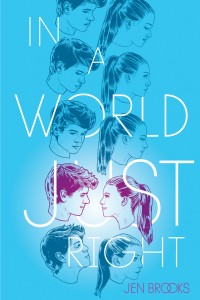endings
Great book endings
So I’m thinking about book endings. I mean, I’m thinking about what makes a book ending GREAT.
Because I’m taking a pause in my writing, I’ve been catching up on reading. (I don’t seem to be able to read and write prolifically at the same time.) I’ve been struck by how much, or how little, I love the endings of some of the novels I’m reading, and I can’t help but be insecure about the impact of the endings of the stories I’ve written.
I’ve been taught that the ending to a novel should deliver the inevitable in a way the reader does not expect. To do this, a story must be meticulously plotted with characters’ actions carefully bringing about the ending. Some novels I’ve read this year seem to be plotted correctly, to build sufficiently to the ending, yet somehow I don’t get the big bang out them that I crave. In truth, very rarely do I get a true feeling of completion, of catharsis, of fulfillment when I read a novel, and although I chalk that up to my impossibly high standards (after all, I do LIKE a lot of books, but here I’m talking about LOVING a book), I think I can pinpoint a couple of reasons I am disappointed by endings.
Ironically, my disappointment in an ending is proportional to my faith in an author’s skill. If I’m reading a book and find myself entranced by its language, its concept, its world-building; if I find myself excited about the thematic complexity; if I say to myself, Holy crap, this author knows what he/she is doing; then I ratchet up my expectations for a jaw-dropping ending. This is probably not fair since I tolerate much less in an ending when the beginning and middle don’t foster such high expectations in me. I can use the example here of TVs Lost and Battlestar Galactica. I adore both stories (own both on DVD), and I like both endings, but ultimately I don’t feel those endings exploited the full potential that was there throughout.
Another way an ending can disappoint me is if I feel essentially unchanged by what the author ultimately has to say. I want a book to have educated me or have made me think about something in a new way. Again, I can get excited during the beginning and middle of a book as I contemplate the premise or the message I think is coming, and when nothing of earth-shattering significance shows up in the conclusion . . . disappointment.
Mostly I am disappointed in an ending if I can sit there with the book closed and think about how I might have made the ending better.
I know I’ve loved the ending when I want to sit there and savor what happened, just the way it did.
It’s hard to talk about specific endings that I’ve loved because doing so obviously creates spoilers, but here I offer, by way of example, a brief list of books I’ve read that have wholly satisfied me with their endings. You’ll likely recognize all of them. The first thing I noticed upon reflection is that several are series, and I think this says something about what I need in complexity in order to feel I’ve had a satisfying pay-off.
The Hyperion Cantos by Dan Simmons
The Harry Potter series by J.K. Rowling
Ender’s Game by Orson Scott Card
The His Dark Materials trilogy by Philip Pullman
Thirteen Reasons Why by Jay Asher
The Time Traveler’s Wife by Audrey Niffenegger
The Book Thief by Markus Zusak
To the Lighthouse by Virginia Woolf (my favorite book ever)
What do you need in order to LOVE a book’s ending? What ultimately disappoints you about endings? What are some books that have had the greatest pay-off for you? (Be warned I will use your advice to revise my own stories’ endings!)
